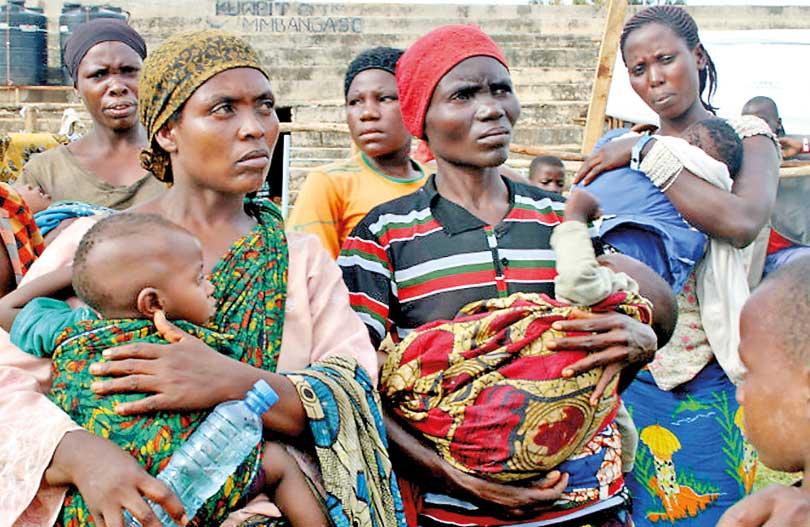15 Aug 2019 - {{hitsCtrl.values.hits}}

Thy famous author Ernest Hemmingway in one of his bestselling books titled For whom the bells toll, makes a challenging and prophetic proclamation which we need to deeply reflect on. He says: “I belong to humanity and every person’s death diminishes me.” But during the past century especially, a large number of countries and people appear to have worked completely against this principle and are still doing so. In the Second World War, tens of millions of people were killed, injured or displaced with Adolf Hitler’s Nazi massacres being considered a most horrifying and outrageous act of inhumanity in history. It was in this war’s aftermath that the Catholic Church proclaimed the dogma of the Assumption of the Blessed Mother Mary. The feast which is celebrated today intends to emphasize the value of human life.
Though most of us, most of the time are selfish, self-centred or enslaved to ourselves, our selfish wants or ambitions, the more liberated people gradually rise to the dimensions of being other-centred, that means we live for others, care for them, help and sacrifice for others without expecting anything in return. It is a widely held belief that those who live for others will live forever. Of course, we also know that to err is human and to forgive divine. That is why forgiveness, not just seven times but even seventy times seven, takes away hatred, bitterness, anger and other vices to make us good, productive and game-changing human beings.
It is with the inspiration and encouragement of such reflections that we mark the United Nations World Humanitarian Day next Monday, August 19. To mark the event the world body in a statement says that on this day we need to honour the work of women in crises throughout the world and focus on the unsung heroes and heroines who have long been working on the front lines in their own communities in some of the most difficult terrains, from the war-wounded in Afghanistan, to the food insecure in the Sahel, to those who have lost their homes and livelihoods in places such as the Central African Republic, South Sudan, Syria and Yemen. We also need to salute the efforts of women aid workers who rally to people in need. According to the UN, women make up a large number of those who risk their own lives to save others. They are often the first to respond and the last to leave. These women deserve to be celebrated. They are needed today as much as ever to strengthen the global humanitarian response. World leaders and non-State actors must ensure that women, girls – and all humanitarians – are guaranteed the protection afforded to them under International Law.
The United Nations Fund for Population Activities (UNFPA) says that of the more than 125 million people in need of humanitarian assistance worldwide, about 75 per cent are women and children. Women often stay behind during conflict and natural disasters to take care of children and family members, while men may leave for the frontlines or to find jobs elsewhere. As they try to get by with little support in chaotic and dangerous situations, women and girls are exposed to death and disability, hunger, exploitation and gender-based violence. In 2015, 61 per cent of maternal deaths occurred in 35 countries affected by an emergency situation or fragile conditions. Due to insecurity, lawlessness and destruction of health facilities and other infrastructure, women are often prevented from accessing life-saving health services in emergency situations. In many cases, reaching the nearest maternal clinic or hospital can prove life-threatening.
Providing quality, accessible sexual and reproductive health services saves lives. Successfully doing so in fragile settings requires working with local communities, health providers and civil society to identify local risks – and solutions, UNFPA says.
In Sri Lanka, especially in the aftermath of the 30 - year civil war and this year’s Easter Sunday suicide bombings on April 21, we need to consider ourselves as human beings and rise beyond differences such as race, religion and social status. If we work together as human beings we could make much progress in addressing key world issues such as poverty alleviation, the battle against global warming or climate change and disarmament, mainly the dismantling of nuclear weapons which could within minutes destroy the whole of humanity and the world.
25 Apr 2024 35 minute ago
25 Apr 2024 1 hours ago
25 Apr 2024 2 hours ago
25 Apr 2024 2 hours ago
25 Apr 2024 3 hours ago